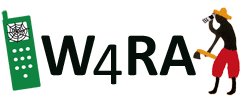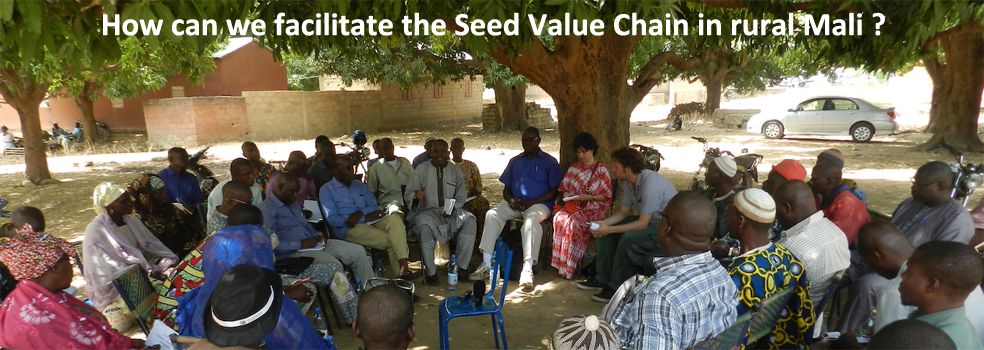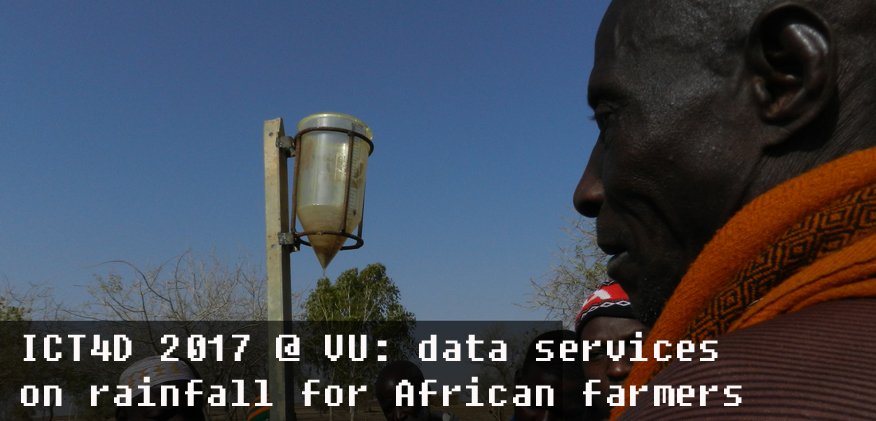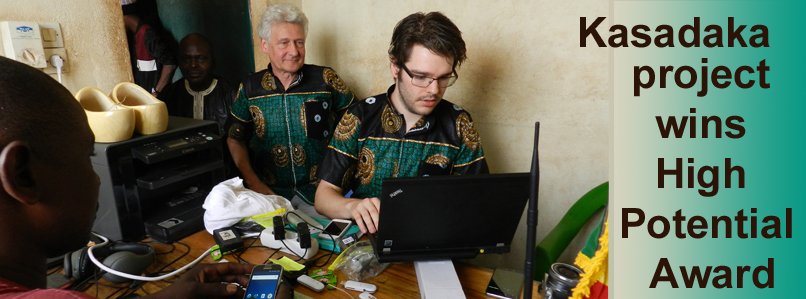From 25 August to 1 September 2017, The W4RA team visited UNIMAS in Sarawak. Aim of this visit was to continue and expand research collaboration with UNIMAS in ICT4D. The W4RA team was represented, on this trip, by Prof. Hans Akkermans, Dr. Jaap Gordijn, Anna Bon and Bruno van Moerkerken, who did filming and photography for this trip. Besides, the W4RA team took this opportunity to explore possibilities for student and research staff exchange between VU Amsterdam and UNIMAS.
The visit was organized by Dr. Cheah WaiShiang, lecturer and researcher at UNIMAS. As a postdoctoral researcher, Cheah worked at VU’s Network Institute, in the period 2015 – 2016, where he studied the financial sustainability of various ICT4D initiatives, which have been done in the Long Lamai and Bario communities in the interior of Sarawak. Cheah used the e3value methodology in this study. Currently he is working on a paper about this topic.
The week started with a field visit to Kampung Pinggang Jaya, a rural community of 700 inhabitants, in the neighborhood of Kuching, Sarawak’s capital. According to W4RA’s field-based research approach (coined ICT4D 3.0) each project starts with a local context analysis and needs assessment. The W4RA team was therefore introduced to the community by Cheah, who has been working with groups of women and children, to explore their ICT4D needs for quite some time. Mrs. Rohana, the spokesperson of the kampung, and contact person for UNIMAS, showed us around. We learnt about the production of Gula Apong, a local sugar product, produced the Apong palm tree. The sugar water is collected in the early morning, before 7 a.m. from the flowers of this palm tree. Rohana’s family collects about 70 bottles (of 1 l) of this sugar water per day. The liquid is then boiled, during 7 hours, until it starts to caramelize. The whole process yields 10 kg of Gula Apong per day, a tasty and sweet paste, which is sold in the neighborhood. One kg is sold for 8 Riggit (MYR), which is about 1,50 EUR. There is a demand for Gula Apong, so there is plenty of room to expand the production. However, the work is hard and time consuming.
The W4RA team had the opportunity to see the whole production process of Gula Apong, during the visit. To get an idea of the local context – which is key in ICT4D 3.0 – the team even tried stirring the syrup with a big spoon, when it finished boiling in the big pan.
After the field visit, a needs assessment workshop (a focus group discussion) was done in the kampung’s house ,with two different groups. First a group of 11 women was interviewed. The women were asked about their use of ICTs and their information needs. Anna moderated the workshop, with help of two computer science students of UNIMAS, who did the translation from Malay to English and vice versa. Fortunately, the women had a basic understanding of English, and Anna could also say a few words ‘sedikit-sedikit’.
The women were very intereste d to learn more about ICT. The internet connection in this kampung is still poor, but at the jetty (at the border of the Sarawak river), a few hundred meters from their homes, they could access it. They all used Whatsapp to communicate with friends and family. The women expressed the wish to have a tool to improve the sales of Gula Apong and other local products. Besides this, they wanted to help the education of their children, using ICT. They told us they were pleased with the ICT4D project by UNIMAS, from which they learnt a lot new things about ICT. They all had a smartphone and were able to read and write. The house had a tv set.
d to learn more about ICT. The internet connection in this kampung is still poor, but at the jetty (at the border of the Sarawak river), a few hundred meters from their homes, they could access it. They all used Whatsapp to communicate with friends and family. The women expressed the wish to have a tool to improve the sales of Gula Apong and other local products. Besides this, they wanted to help the education of their children, using ICT. They told us they were pleased with the ICT4D project by UNIMAS, from which they learnt a lot new things about ICT. They all had a smartphone and were able to read and write. The house had a tv set.
After lunch, (with plenty of local dishes in the family kitchen of Rohana), a focus group discussion with a group of 11 children was moderated by Anna and Cheah. All were sitting on the floor of the living room (after taking of your shoes, which is a habit in Malaysian homes). The communication was done with translation help of Amani, a third year computer science student at UNIMAS, and her colleague. For the W4RA team it was the first time they did a ICT4D 3.0 focus group and needs assessement with children. This, of course, requires some special skills from the moderators. The group consisted of 3 boys and 8 girls ranging from 10 to 12 years. The children were very interested in ICT, they all used smartphones and liked games, music and video. When Amani showed them a tablet with an application (a learning game) which she herself had developed to learn children how to spel Arabic letters using a touch screen, they were thrilled. We showed the children the 1 minute promo clip about W4RA, “How to make it rain in Africa” which was made by 14- year old Leeuw van Moerkerken.
We ended the day and drove all the way back to Kuching. It became once again clear to us how important the local partnerships are to do a proper ICT4D research. In this case we can work with Cheah and his colleagues from UNIMAS, who have a long-term relationship with this community.
The next day, 29 August, W4RA team was at UNIMAS, where we attended a conference: Meeting the Challenges of 4th Industrial Revolution & Sarawak’s Digital Transformation Seminar. This is conference was linked to the local governments’ strategic plan for the economic development of Sarawak. Presentations by UNIMAS Vice Chancelor, Prof. Dr Mohamad Kadim Suaidi and three deans of this university. The visit of the delegation form VU, was mentioned in the opening address by the Vice Chancelor. The Dean of the Faculty of Computer Science and Information Technology, Dr Johari bin Abdullah, gave a talk about The 9 Pillars of Industry Revolution 4.0’.
In the afternoon we met Dr. Johari together with the Deputi Dean of International Affairs, Dr. Regina Gerai Abdullah.We discussed a possible MoU between UNIMAS and VU, and the possibilities for student and staff mobility.
UNIMAS has a strong program on Community Service Learning, which they started in 2016, in collaboration with Cornell University (US). This program, which is run by the Faculty of Computer Scienceand Information Technology (FCSIT), aims at bridging the gap between the classroom and communities. Students of UNIMAS go to the field and develop ICT solutions for local communities in Sarawak. The program is currently focused on primary education, and how this can be improved with use of ICT.
After the meetings Hans and Anna gave presentations about (i) “Extending the Web without the Internet, A Socio-Technical Network Perspective” and (ii) “ICT4D 3.0″ . The talks wereattended by about 30 researchers and staff members from the FCIST and the ISITI (Institute for Social Informatics and Technological Innovation).
Wednesday 30th of August, Jaap gave a full lecture titled “Designing ICT4D networked value constellations with e3-value“.(The full video including slides will be soon online).
The dean and the researchers expressed their interest to start a course on e3value, given the great potential for value modeling in Sarawak’s Digital Economy 4.0. A follow up meeting will be expolored in the coming months.
The fourth day of the trip was a national holiday, 31 August, Malaysia’s independence from British rule, which lasted until 1957. A special ceremony for this 60th independence day was a the Sarawak Cultural Village, with tradional dances and performances by all different ethnic groups in Sarawak. We were kindly invited to this trip by Cheah and Prof. Narayanan Kulathuramaiyer, who is the director of the ISITI research institute, The Institute for Social Informatics and Technological Innovation at UNIMAS.
The trip to Sarawak was a success, and we hope for a follow up in the following months.
























































